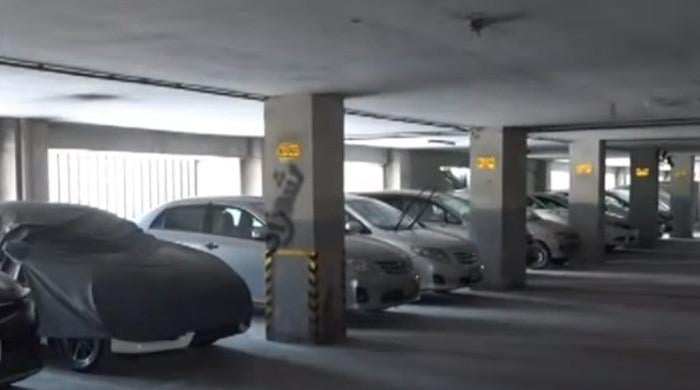Huawei ban will not affect Pakistan-China projects
Chairman parliamentary committee of CPEC speaks to Geo.tv about Huawei, security situation on Pakistan
June 13, 2019

Sher Ali Arbab, the chairman of the parliamentary committee on the China-Pakistan Economic Corridor (CPEC) spoke to Geo.tv about the US embargo on China’s Huawei, the security situation in Balochistan and on the parliament’s role in facilitating the development projects under the CPEC.
Excerpts:
Q: Will the United States sanctions on China’s telecommunication company, Huawei, affect its customers in Pakistan?
Arbab: The US-China tech-war, and the US blacklisting Huawei, will have no implications on the Pak-China business ventures. Huawei, as you may know, is the official partner of Pakistan in the Safe City projects, fibre-optic cable project, and other CPEC-related undertakings. All the equipment, we are using, are made in China. Huawei does not depend on other countries to manufacture its products. So, there will be no effect on our market. However, in the long run, I see a gradual de-escalation in the US-China conflict, as the world today it moving towards connectivity and trade, and away from confrontation.
Q: In the last few months, there has been a resurgence of terrorist activities, especially close to the CPEC project sites. How do you see this development?
Arbab: The parliamentary committee on the CPEC is likely to meet in the coming days. During which we aim to discuss the security challenges being faced by the country. All stakeholders, including the civil and military institutions, businessmen and Chinese officials will be taken on board to hammer out a strategy. In the meeting, we will also examine the loopholes that are affecting the execution of the CPEC projects.
Q: What is the scope of the newly-constituted parliamentary committee on CPEC?
Arbab: We are tasked to oversee each and every detail of all CPEC projects, its modalities and implementation. The committee is also obligated to put forth needful recommendations when required for the smooth completion of the projects. Further, although we are not officially mandated, we aim to create harmony and address the grievances of the provinces related to the CPEC. Separately, the committee is empowered to conduct studies and surveys on agriculture, industrialisation, special economic zones, skill development and poverty mitigation to assist the CPEC to meet its challenges.
Q: How effective do you think this committee can be in ironing out differences between the government and the opposition on issues related to CPEC?
Arbab: This committee has members from the parliament and the Senate, irrespective of their party affiliation. It will work objectively and ensure that CPEC is not politicised. The Corridor is a national and business opportunity for entire Pakistan. It has not launched by the Pakistan Tehreek-e-Insaf government; in fact, it was set up during the previous tenure of the Pakistan Muslim League-N. So, it does not belong to any one party. Its ownership rests with the whole of Pakistan.











